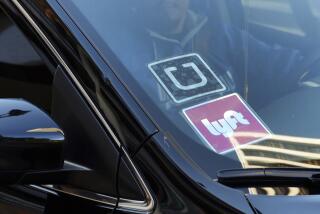Lyft expanding to Asia by partnering with Uber’s competitors
The race to bring American app-based ride-hailing services to Asia is on.
Lyft, Uber’s main competitor in the U.S., announced Thursday a partnership with GrabTaxi and Ola, two on-demand transportation services available in Southeast Asia and India. The deals follow a similar agreement the San Francisco company announced in September with Chinese ride-hailing giant Didi Kuaidi.
Lyft’s global expansion strategy is markedly different from Uber’s, the latter of which is already available in 67 countries.
Uber’s strategy involves launching the company’s services in new countries and competing with local incumbents. The company notably spent $1 billion this year to increase its presence in China and another $1 billion to to expand in India.
Lyft’s approach, meanwhile, involves partnering with local incumbents, allowing it to leverage their technology and workforce. When the partnerships kick in sometime in early 2016, Lyft customers who open the app while in China, India or Southeast Asia will be able to hail a ride from one of the company’s partners, and vice versa.
It’s a safe move for the ride-hailing company, which has a fraction of Uber’s resources. The partnerships allow the company to expand globally while taking on less risk.
And while Uber finds itself battling uphill in markets such as China, it seems to be getting rewarded for its boldness. Bloomberg reported Thursday that the firm is looking to raise another $2.1 billion, which would value the ride-hailing company at $62.5 billion.
Lyft, on the other hand, is reportedly seeking another $500 million in funding, which would value the company at $4 billion.
Twitter: @traceylien
MORE ON RIDE-SHARING
Op-Ed: A common-sense solution to the Uber vs. taxi wars
Steve Lopez: After driving for Uber, he’s keeping his day job
Uber and Lyft may have to treat their drivers as employees, judge says







